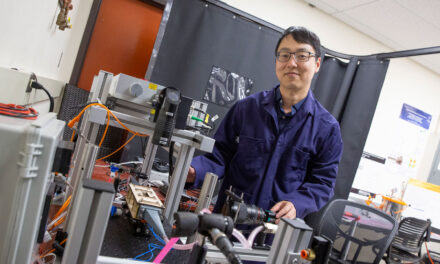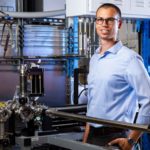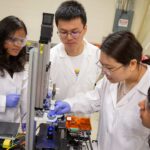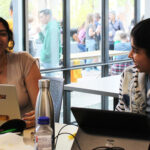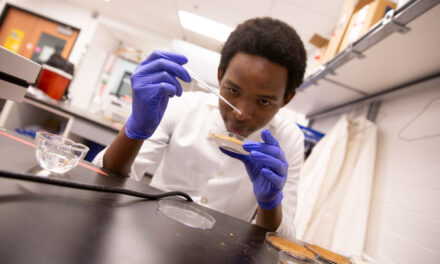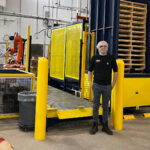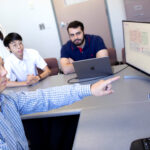
Triple major graduate charts his own course to success

John Cava graduated this spring with three undergraduate degrees from Arizona State University.
John Cava is a rare college student to complete not just a double major but a triple major in his studies at Arizona State University.
Cava graduated this spring with a degree in computer science from the Ira A. Fulton Schools of Engineering and degrees in mathematics and molecular biosciences and biotechnology from the College of Liberal Arts and Sciences.
Before arriving at ASU, Cava wanted to be a molecular biologist, but he decided to take his education further.
“I was fascinated how natural processes created complex molecular machinery that makes the diverse set of organisms in the world,” he says. “Then I saw a documentary showcasing how artificial evolution was used as an algorithm for artificial intelligence and I switched focus into wanting to understand AI. My interests in AI helped me get into computer science.”
While the California native was not accepted by any other university, he found a place to thrive at ASU. His recent achievement epitomizes the ASU Charter: “ASU is a comprehensive public research university, measured not by whom it excludes, but by whom it includes and how they succeed…” Cava’s success is a reminder of the power of inclusion.
Cava attributes part of his success in the Fulton Schools to the academic advising team.
“For my computer science degree, there was a set paper that detailed the paths to finish my degree,” he says. “For my other majors, they didn’t have that so I had to look through the classes, their requirements, and see what I wanted to take and how did that relay to my graduation.”
Cava also appreciates the opportunity to learn from the astute faculty in the Fulton Schools.
“It was a very amazing experience,” he says. “Being able to take classes under extremely talented professors and trying to pick their brain. Even taking a graduate Statistical Machine Learning class as an undergraduate was an enlightening endeavor.”
While Cava doesn’t know where his future will take him, he has some goals.
“I really want to pursue going to graduate school,” he says. “I want to understand new mathematical theory and applications to create machine learning/artificial intelligence algorithms to solve biological problems.”
He hopes to earn both a master’s and doctoral degree before heading into industry.
“I would like to work for a biotechnology company that utilizes machine learning,” he says. “Though working for tech companies revolving natural language processing, computer vision, etc. would be something I would also enjoy.”


